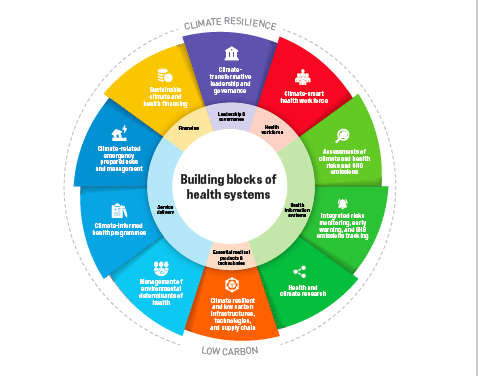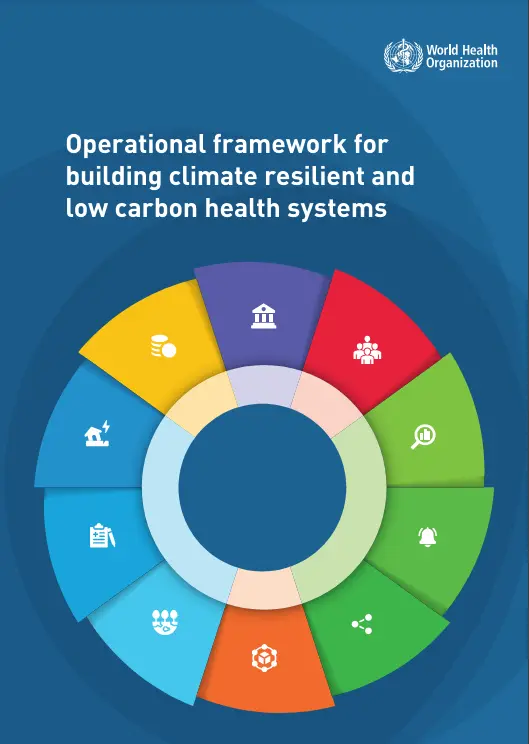WHO Unveils Framework to Build Climate-Friendly Health Systems
The World Health Organization (WHO) is taking a big step towards protecting health in a changing climate. The new WHO Operational Framework for Building Climate Resilient and Low Carbon Health Systems offers a roadmap for strengthening health systems and reducing greenhouse gas emissions at the same time.
This framework is designed to help health organizations around the world better prepare for, prevent, and manage the health risks caused by climate change. It outlines ten key components, including:
- Leadership and Governance: Building strong leadership that prioritizes both climate resilience and low carbon practices.
- Skilled Workforce: Ensuring health professionals have the knowledge and training to address climate-related health issues.
- Risk Assessments: Evaluating climate threats and health system emissions to identify areas for improvement.
- Monitoring and Early Warning: Creating systems to track health risks and emissions fluctuations.
- Research and Development: Supporting research on climate-health solutions and low-carbon healthcare practices.
- Sustainable Infrastructure: Investing in climate-resilient and low-carbon technologies and supply chains for healthcare facilities.
- Environmental Management: Addressing environmental factors that affect health, such as clean water and sanitation.
- Climate-Friendly Programs: Developing health programs that consider and address climate risks.
- Emergency Preparedness: Building capacity to respond to climate-related health emergencies effectively.
- Sustainable Financing: Securing funding to support climate-resilient and low-carbon healthcare systems.

By implementing these components, health systems can become more resilient to climate change impacts while also reducing their environmental footprint. This not only benefits public health but also contributes to achieving universal health coverage, global health security, and the Sustainable Development Goals (SDGs).
This framework is a valuable resource for decision-makers in healthcare, public health agencies, and other relevant sectors. It empowers them to take action on climate change and build a healthier future for all.
READ MORE: DOWNLOAD THE FRAMEWORK

